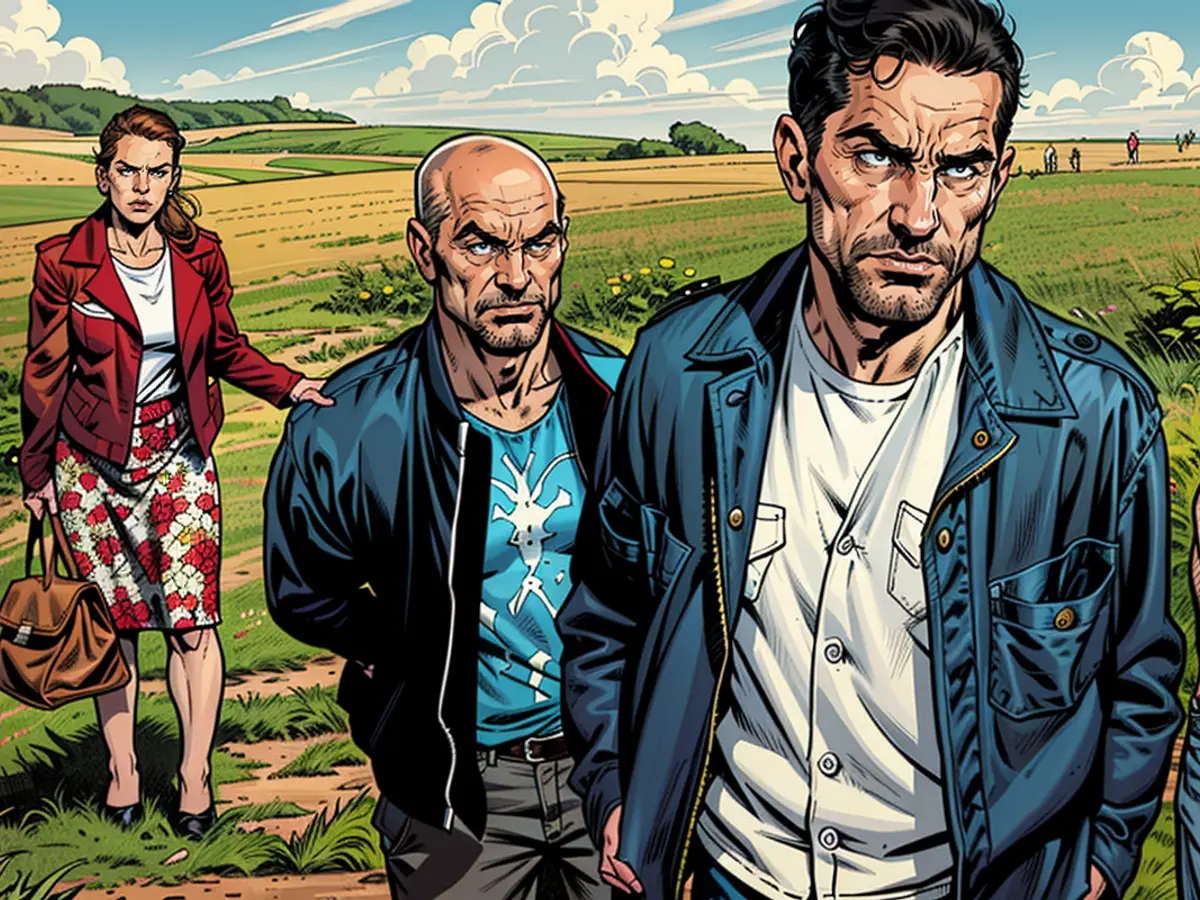Television - End of the Bachelor Life: Crime "Rehragout-Rendezvous"
A revolution has broken out in Niederkaltenkirchen. Oma no longer wants to cook and clean, and Susi wants to make a career and not just stand behind the scenes to manage the daily family chaos. Difficult times for village policeman Franz Eberhofer, his father, and his brother Leopold, who have been comfortably nestled in the previous eight films of the "Eberhofer" series.
With that, the comedy "Rehragout-Rendezvous" comes to an end. The Men have to step up, as Susi and Oma no longer want to be taken advantage of. The film can be seen in the "ARD-Sommerkino" series on Monday at 8:15 pm on the First.
"Perhaps it was inevitable that the most important female characters took up more space," said producer Kerstin Schmidbauer in reference to the box office success of the film a year ago. The comedy is based on the 11th book of the crime series by Rita Falk. Sebastian Bezzel and Simon Schwarz, alias private detective Rudi Birkenberger, investigate a missing persons case that turns out to be a murder this time.
New times, then, in the "Eberhofer" universe? No. The discussions in the film are outdated. The fact that mothers work and men take out the trash and wind the children - in many relationships, this is commonplace by now. Eberhofer appears outdated in the face of his indignation that he is expected to leave his job earlier to take care of his son Pauli. The same seems to have passed by his father (Eisi Gulp) and brother Leonard (Gerhard Wittmann) without a trace.
The women are no longer willing to put up with it. Enzi Fuchs as Oma dares to protest - again, wonderfully subtle and fragile. Potthoff plays as usual agile and offers the men around her unimpressed challenges.
However, the script sets limits on the self-awareness of its character. Susi doesn't come across as the spearhead of emancipation when she stumbles into her new role as deputy mayor of the fictional village in Lower Bavaria in her pink Barbie costume. The cliché of an inexperienced woman who doesn't quite know how to fill this place. Calming, that she eventually finds her voice and discovers her professional ambition.
"Rehragout-Rendezvous" steers the series in a new direction. More female power, less tolerance for male indulgences. Fans of dumb jokes and slapstick comedy will still get their money's worth. Exaggerated macho behavior and shallow jokes are piled up, not least at the expense of Franz, who feels pressured by Susi's ambitions in the most intimate areas. Metzger Simmerl (Stephan Zinner), Wirt Wolfi (Max Schmidt), and Flötzinger (Daniel Christensen) are so driven by this that they want to help him rediscover his masculinity.
The perspective shift gives the story a boost, even if some jokes are no longer quite fresh. Nevertheless, the film also serves as a signal to the male world: Even in the most remote corners, it no longer fits comfortably into the macho niche.
- Ms. Schmidbauer, the producer, acknowledged the increased prominence of female characters in the film's success, reflecting trends in modern society.
- The "ARD-Sommerkino" series will air "Rehragout-Rendezvous" on Monday at 8:15 pm, offering viewers a chance to witness this shift in narrative.
- In Munich, Germany, Franz Eberhofer and his family face new challenges, as the traditional roles in their relationships are being redefined.
- Franz, along with his father and brother, must adapt to the ardedally changing dynamics, finding it difficult to navigate this transition in their long-running series.
- The comedy "Rehragout-Rendezvous" is set in Bavaria, a region known for its rich history and traditions, yet it addresses contemporary issues of gender roles and expectations.
- The missing persons case investigated by Bezzel and Schwarz unravels to reveal a darker truth, providing a backdrop for the characters' personal growth and development.
- Oma, played by Enzi Fuchs, is a strong and resilient character who refuses to be silenced or overlooked, inspiring other women in the narrative.
- The comedy genre, often associated with light-hearted comedy, takes on a more serious tone, addressing the complexities of gender dynamics in a humorous yet thoughtful manner.
- The actors, including Franz Eberhofer, Sebastian Bezzel, and Simon Schwarz, bring depth and realism to their roles, allowing audiences to connect with the characters and their struggles.
- This shift towards more nuanced and diverse representation in media is a positive step, encouraging viewers to question and challenge conventional notions of masculinity and femininity.







